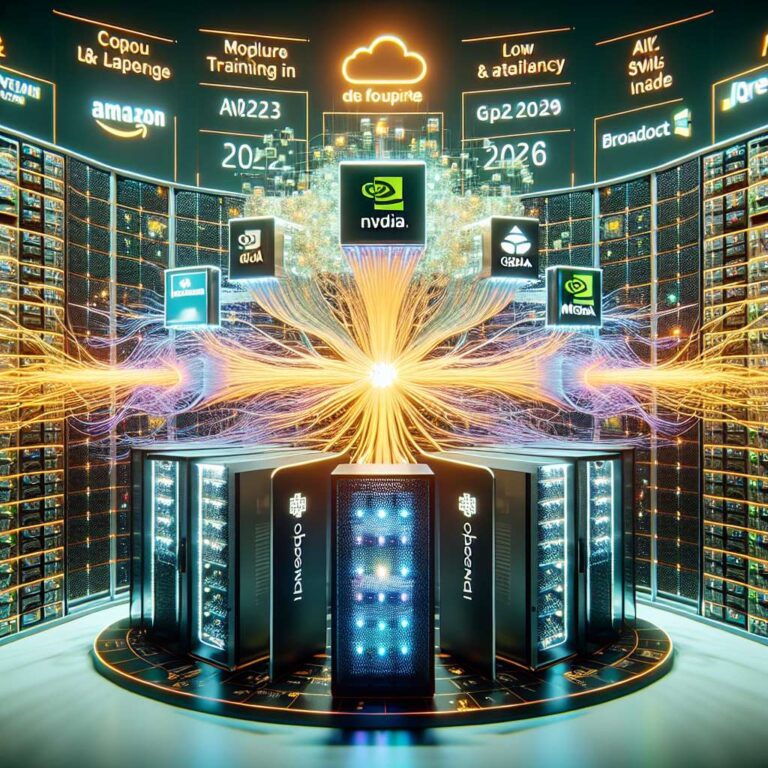Amazon Web Services and OpenAI have agreed to a reported NULL billion, seven-year arrangement that will place OpenAI workloads on AWS’s high-end cloud infrastructure. The deal gives OpenAI access to clusters comprised of hundreds of thousands of NVIDIA GB200 and GB300 GPUs deployed on Amazon EC2 UltraServers. AWS will link those servers with a fast, high-capacity network designed to handle both inference and large-scale model training, with the complete planned capacity expected to be available by the end of 2026.
The choice of AWS reflects its operational experience. The article notes that AWS has previously managed clusters exceeding 500,000 chips, a capability that influenced OpenAI’s decision. The new infrastructure is intended to support a range of OpenAI applications, explicitly including ChatGPT inference workloads and the training of next-generation foundation models. Technical details highlighted include the use of EC2 UltraServers and networking optimized for high throughput and low latency across GPU clusters.
OpenAI’s agreement with AWS is part of a broader strategy to secure diverse compute partnerships. The company has recent arrangements with NVIDIA, AMD, Microsoft, Broadcom, and Oracle to access various high-end chips and cloud systems. OpenAI CEO Sam Altman said the company plans to invest NULL.4 trillion to build 30 gigawatts of computing capacity, a scale the article equates to the power consumption of roughly 25 million U.S. households. To date, OpenAI has secured partnerships accounting for specific portions of that target, including NVIDIA for 10 gigawatts, AMD for 6 gigawatts, and Oracle for 4.5 gigawatts, as it moves toward the stated 30 gigawatt infrastructure goal.

